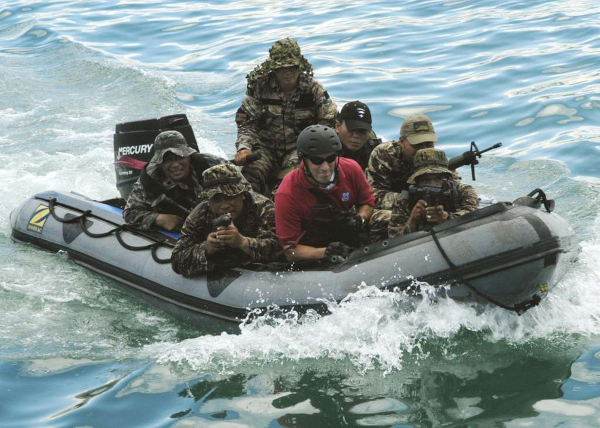The Coast Guard often gets overlooked when recruits consider the different uniformed services of the U.S. Armed Forces.
It is a mistake, as the U.S. Coast Guard serves two vital functions on American soil – maritime security and law enforcement.
Additionally, the Coast Guard has Special Forces just like any other military branch, even if the USCG is technically not under the Department of Defense (DoD).
Joining Coast Guard Special Forces is a thrilling opportunity to combat terrorism and other threats at sea.
Learn more about the different Coast Guard Special Forces to find which unit fits the description of what you are looking to get out of the USCG.
Related Article: How To Join The Coast Guard
What Types of Coast Guard Special Forces are there?
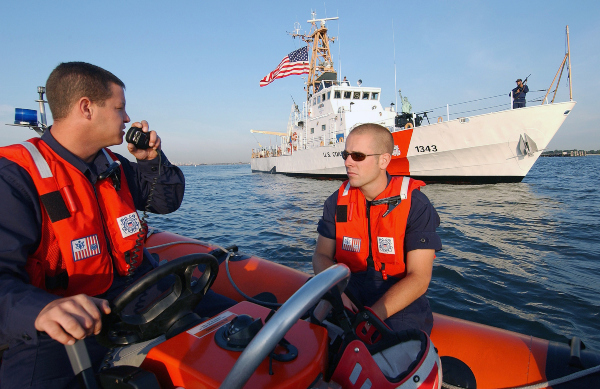
The U.S. Coast Guard represents the maritime security, search and rescue, and law enforcement branch of the Department of Home Security.
The branch is unique in that it carries out maritime law enforcement in domestic and international waters, along with highly sophisticated missions.
It is currently under the supervision of Homeland Security, however, the Coast Guard also provides support for the U.S. Navy with its Special Forces.
Following the 9/11 terrorist attacks on American soil, the U.S. Armed Forces began looking at new ways to combat terrorism.
The Deployable Operations Group (DOG) was created to properly equip, train, and organize Special Forces within the United States Coast Guard.
DOG performed highly specialized missions for the Department of Defense but was decommissioned in 2013.
Regardless, many of the original units created by DOG continue to operate under the Coast Guard under the new title Deployable Specialized Forces (DSF).
Coast Guard Special Forces provided critical response to the 2010 earthquake in Haiti along with the Deepwater Horizon oil spill in the Gulf of Mexico.
Along with assisting in natural disasters, much of the other work performed by Coast Guard Special Forces is highly confidential.
Nonetheless, we do know that Coast Guard Special Forces are the first response for counter-terrorism on open waters, including combating piracy operations in the Middle East.
Related Article – 5 Maritime Security Jobs: Contracting With / Without Military Experience
Coast Guard Special Forces
There are many units that fall under the Coast Guard Special Forces umbrella:
Maritime Security Response Team (MSRT): The Maritime Security Response Team (MSRT) is the most recognizable of Coast Guard Special Forces. Coast Guard MSRT is trained to act as first responders to maritime terrorist threats.
Maritime Safety & Security Team (MSST): The Maritime Safety & Security Team (MSST) works closely with MSRT units. Coast Guard MSST produces waterborne and shore-side protection from terrorist attacks.
Tactical Law Enforcement Teams (TACLET): Tactical Law Enforcement Teams (TACLET) work alongside Coast Guard MSRT and MSST units. These teams primarily focus on counter-narcotics operations.
National Strike Force (NSF): The National Strike Force (NSF) offers highly trained personnel to assist with natural disasters and oil spills. The unit is also trained to deal with hazardous materials and weapons of mass destruction (WMD).
Port Security Units (PSU): Port Security has a long and proud tradition in the USCG. Port Security Units (PSU) provide deployable expeditionary force protection, unlike other USCG units.
Related Article – Coast Guard Jobs List: A List Of All Ratings In The Coast Guard
Maritime Security Response Team (MSRT)
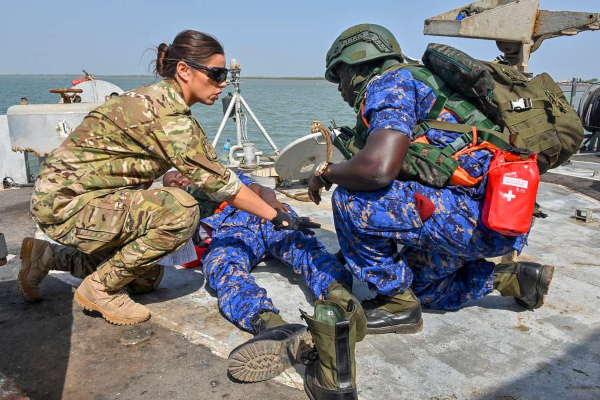
The Maritime Security Response Team (MSRT) is the most recognizable of the Coast Guard Special Forces.
Coast Guard MSRT is the only unit within the military branch that can provide counter-terrorism support.
Maritime Security Response Teams act as first responders to potential terrorist threats.
Coast Guard MSRT is capable of denying preemptive terrorist actions, executing security actions against armed hostiles, participating in port-level security, and executing tactical facility entry.
While Coast Guard MSRT primarily focuses on protecting domestic waters and assets, the unit may rapidly deploy to other parts of the world in response to incidents.
As a result, Coast Guard MSRT units often train alongside other elite Special Forces such as Navy SEALs.
Coast Guard Maritime Security Response Teams also provide direct action (DA) and advanced interdiction (AI) along with counter-terrorism duties.
USCG MSRT units are well-trained in hostage rescue and personnel recovery, small unit tactics, counter-assault, chemical, biological, radiological, and nuclear defense (CBRNE), and tactical maritime law enforcement.
As is the case with most Special Forces, it is not easy to join a Coast Guard Maritime Security Response Team.
Most candidates have already served in Maritime Enforcement (ME) and spent several years in training before officially joining a team.
Some current members of Coast Guard MSRT served previously on other USCG Special Forces such as TACLET and MSST.
USCG Maritime Security Response Team – Direct Action Section (DAS)
There are many that seek to become team members of Coast Guard MSRT’s primary assault force, known as the Direct Action Section (DAS).
The Direction Action Section generally consists of several team members, including a Team Leader, Precision Marksmen, Observation Members, CBRN Members, Comms/JTACs, and Breachers.
Coast Guard DAS teams train extensively in advanced close-quarter combat as well as combat marksmanship.
As a result, they can quickly and inconspicuously board suspicious vessels, secure assets, and eliminate hostile targets.
Maritime Safety & Security Team (MSST)
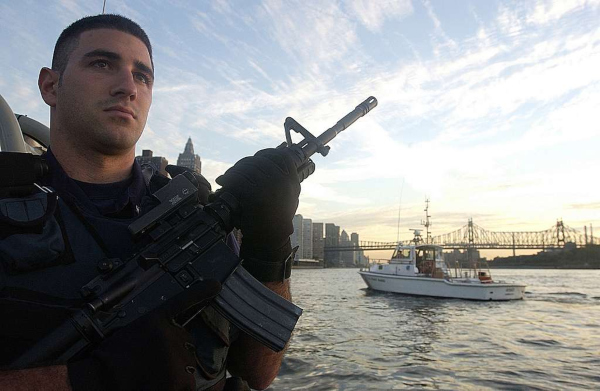
Coast Guard Maritime Safety and Security Teams (MSST) have not been in existence nearly as long as MSRT.
The Special Forces unit was established under the Maritime Transportation Security Act of 2002 in response to the 9/11 terrorist attacks.
USCG Maritime Safety and Security Teams also provide counter-terrorism support.
The units focus on producing waterborne and shore-side counter-terrorism and force protection for shipping and other high-interest vessels.
Additionally, Coast Guard MSST units may get assigned to protect critical infrastructure on land.
Coast Guard MSST is a quick response force that can also deploy around the nation similar to MSRT units.
Maritime Safety and Security Teams are capable of providing rapid deployment by air, ground, or sea.
MSST regularly trains alongside other Coast Guard Special Forces as well as Navy Special Boat Teams and the FBI.
Ultimately, the primary goal of Coast Guard MSST is to protect ports and other maritime facilities from terrorist incidents.
Recruits that desire to join Coast Guard MSST can expect plenty of competition, just like joining other Special Forces.
Maritime Safety and Security Teams produce K9 explosive detection teams and other waterside security functions.
Homeland Security keeps most of its operations secretive for good reason, which is why we do not know a ton about Coast Guard MSST training.
All in all, you can expect comparable training and length of time (1.5 – 2 years) to prepare for a military career in Coast Guard Special Forces.
Related Article: Coast Guard Height And Weight Requirements
Tactical Law Enforcement Teams (TACLET)
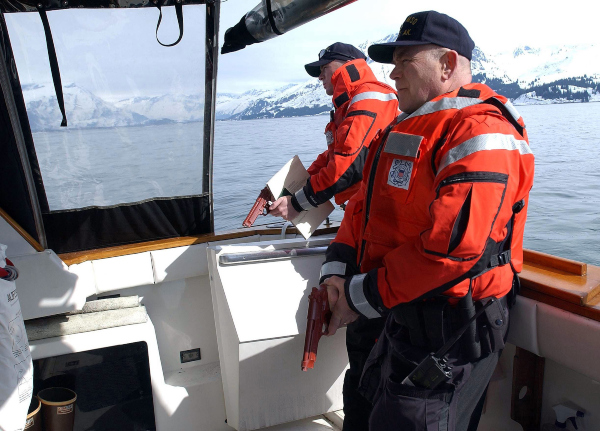
Coast Guard Special Forces also include Tactical Law Enforcement Teams (TACLET).
TACLET regularly assists other Special Forces in the USCG like Maritime Security Response Teams (MSRT) and Maritime Safety and Security Teams (MSST).
Coast Guard TACLET offers specialized law enforcement detachments for Special Forces.
These law enforcement detachments (LEDET) may conduct counter-narcotics law enforcement and interdiction operations from U.S. and allied naval vessels.
Coast Guard TACLET is much smaller than other Special Forces with only 2 units.
The first unit is located in Florida and protects the Atlantic Ocean and Gulf of Mexico.
Meanwhile, the second unit is headquartered in San Diego, California, and supervises the Pacific Coast.
Tactical Law Enforcement Teams (TACLET) support military combat operations in counter-piracy and terrorism.
The small unit presents many forms of interdiction, including alien migration or military force protection.
Lastly, the Homeland Security specialized unit may also assist in humanitarian response following a natural disaster.
It is challenging yet not impossible to join Coast Guard TACLET, just like the other Special Forces.
The waiting list is long and requires patience as it will take a year or more to complete training and that’s after you get into a specialized program.
You’ll need to successfully complete Coast Guard boot camp and other obligations before you get a crack at Special Forces.
The Coast Guard will also examine your personal character, which is why establishing a strong reputation with the USCG from day one is important.
National Strike Force (NSF)
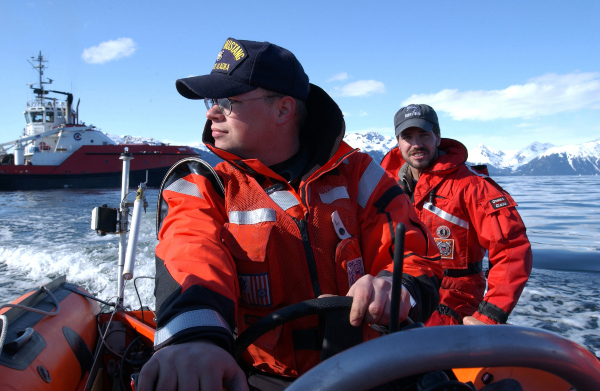
The Coast Guard National Strike Force (NSF) dates back much further (like TACLET) as it was established in the early 1970s.
At the time, Congress felt a need to protect the environment and thus created the Federal Water Pollution Control Act.
Consequently, the Coast Guard National Strike Force was created to support the mission and goals of the legislation.
The Coast Guard NSF produces highly trained individuals that are prepared to rapidly respond to incidents across the globe.
Coast Guard NSF primarily deals with natural disasters and other devastating incidents to the environment such as oil spills.
Additionally, National Strike Force teams are capable of handling hazardous materials and weapons of mass destruction (WMD) exposures.
Coast Guard National Strike Force currently operates 5 units that are composed of a mixture of active-duty, reserve, civilian, and auxiliary personnel.
National Strike Force Coordination Center (NSFCC)
The National Strike Force Coordination Center (NSFCC) presents supervision and guidance for all the strike teams.
Furthermore, the Public Information Assistance Team (PIAT) offers emergency public information services during natural disasters and oil discharges.
The strike teams are stationed across the nation in New Jersey, Alabama, and California.
Each NSF team maintains specialized equipment and is prepared to deploy at a moment’s notice.
Coast Guard National Strike Force is highly respected and recognized throughout the world as an expert authority on preparing for and responding to oil spills or other hazardous substance releases.
There is a significant amount of training to become a member of the Coast Guard NSF since you are dealing with hazardous materials and weapons of mass destruction.
Regardless, the specialized unit is worth pursuing especially if you want to provide humanitarian relief and protect the environment during your time serving the country.
Port Security Units (PSU)
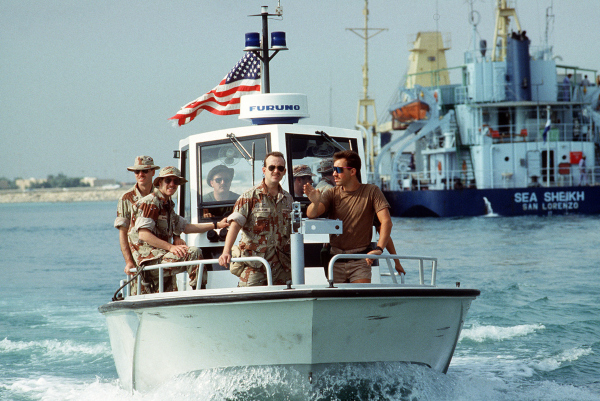
U.S. Coast Guard Port Security Units (PSU) have the longest history of any Special Forces within the military branch.
The origins of Port Security within the U.S. Coast Guard date back to 1917.
The special unit was created with the passing of the Espionage Act, which was made in response to the Black Tom explosion.
Today, Coast Guard Port Security Units (PSU) protect domestic and international assets.
These units provide maritime interdiction, physical security, and humanitarian response in times of need.
Moreover, they can assist with military combat operations including point defense of strategic shipping and other valuable assets.
Coast Guard PSU can rapidly deploy to other parts of the globe just like other Special Forces.
In fact, the Coast Guard PSU is the only deployable expeditionary force within the service branch.
Coast Guard Port Security Units can deploy anywhere in the world within 96 hours of a crisis.
Furthermore, these highly trained units are capable of establishing operations in less than 24 hours upon arrival to the incident.
Lastly, USCG Port Security Units may serve alongside other Special Forces during DoD operations.
Serving in the Coast Guard PSU is a rewarding opportunity that combines military combat operations with humanitarian relief and crisis management.
Consequently, it will take more than a year to successfully complete the training program yet is worth it for a fulfilling military career.
Related Article – Coast Guard Grooming Standards
Conclusion
Coast Guard Special Forces serve an important function in the military branch.
The 5 special units of the USCG often perform duo functions between helping keep the nation safe from terrorists and piracy, while also providing law enforcement and humanitarian relief.
While the Deployable Operations Group (DOG) is no longer in existence, the U.S. Coast Guard continues to command many of the same special units under the title “Deployable Specialized Forces” (DSF).
Coast Guard Special Forces are extremely well-trained and prepared in a variety of roles.
USCG Special Forces like Maritime Security Response Teams (MSRT) and Maritime Safety and Security Teams (MSST) are often the first responders to active threats in open waters or domestically.
The U.S. Armed Forces designed the Coast Guard to provide its own special ops in order to avoid another domestic attack like the one that happened on September 11, 2001.
It will take years of patience and hard work, but training to join Coast Guard Special Forces is one of the most fulfilling military career paths you may pursue.
Coast Guard Special Forces are highly trained in counter-terrorism and diving operations, as well as close-quarter combat and advanced marksmanship.
Learn more about how USCG Special Forces neutralize the threat by visiting the official website.
- Replacing Dog Tags: 6 Things You Need to Know - June 28, 2024
- Navy OAR Test Study Guide - June 24, 2024
- 10 Best Sniper Movies of all Time - June 20, 2024
Originally posted on December 16, 2020 @ 3:48 pm
Affiliate Disclosure: This post may contain affiliate links. If you click and purchase, I may receive a small commission at no extra cost to you. I only recommend products I have personally vetted. Learn more.
